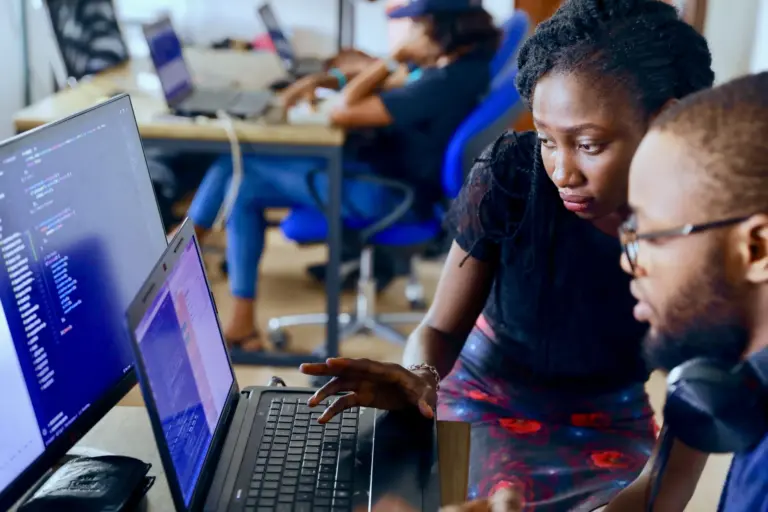Nigeria stands at a pivotal moment in its history—one shaped by a rapidly evolving digital economy and an unparalleled youth demographic. With over 60% of Nigerians under the age of 25, the country has the potential to harness this energetic, tech-savvy population to ignite economic transformation on a global scale. But achieving this vision requires one key enabler: strategic, inclusive, and accessible digital learning.
As digital industries such as fintech, e-commerce, and digital services continue to flourish—making Nigeria Africa’s most funded tech ecosystem—equipping the youth with future-ready skills is no longer optional. It’s essential. In 2021 alone, Nigeria’s fintech sector attracted over $800 million in investments, driven by an increasingly skilled youth workforce trained by companies like Andela and Decagon. Yet these efforts have only scratched the surface. To broaden their impact, Nigeria must fully embrace digital learning as a national development strategy.
Why Digital Learning is Nigeria’s Greatest Economic Lever
Digital learning is more than online education—it is about creating interactive, immersive, and scalable learning experiences tailored to the realities of Nigerian youth. From coding bootcamps to data analytics courses and digital marketing programs, these opportunities unlock access to high-demand, high-income jobs—locally and globally.
Even more significantly, mobile-first platforms and remote learning models can close the gap between urban and rural learners, giving youth in underserved areas access to the same world-class education as those in cities. Self-paced courses, mentorship, and project-based learning also help young Nigerians become creators, not just consumers, of innovation.
Designing Digital Learning for Nigerian Realities
For digital learning to succeed at scale, it must be culturally relevant, device-accessible, and community-driven. Here’s how:
-
Localised Content
Use indigenous examples, languages, and case studies to make learning relatable and applicable to everyday life. -
Mobile Optimization
With most Nigerian youths accessing the internet via smartphones, short-form, mobile-compatible lessons are crucial. -
Public-Private Partnerships
Collaboration among the government, educational institutions, and private sector can fund and scale initiatives that reach more young people. -
Online Communities
Encourage digital peer groups where learners can ask questions, share ideas, and collaborate—enhancing motivation and social learning.
Tackling the Roadblocks to Access
Despite Nigeria’s potential, significant barriers remain. Internet access is inconsistent, digital literacy is low in some regions, and resources are unevenly distributed—especially in rural communities.
Practical solutions include:
-
Expanding Internet Access
Mobile data subsidies and offline content options can reach disconnected learners. -
Digital Literacy Training
Equip youth with foundational tech skills to navigate learning platforms confidently. -
Equity for Rural Youth
Develop infrastructure and content specifically for low-resource settings, ensuring no region is left behind.
Measuring What Matters: Tracking Impact
To prove the value of digital learning and refine its implementation, tracking impact is key. Relevant metrics include:
-
Skill Certification & Mastery
Monitor course completions, certifications, and applied knowledge over time. -
Employment & Entrepreneurship
Track new businesses, job placements, and income levels tied to digital learning. -
Social Contribution
Evaluate participation in local projects, mentoring, or volunteer programs driven by youth.
What’s Next: Trends Shaping the Future of Digital Learning
Digital learning is evolving alongside technological innovation. Nigeria must stay ahead by embracing trends like:
-
AI-Powered Learning Paths
Adaptive platforms tailor content to individual strengths and weaknesses. -
Gamification
Turning learning into an engaging challenge through points, badges, and leaderboards. -
VR & AR Training Simulations
Virtual environments for skill-building in fields like healthcare, engineering, or logistics. -
Collaborative Platforms
Peer-based forums, group projects, and live classes enhance retention and motivation.
Case Study: Phillips Consulting Limited (PCL) – A Model for Impact
One standout leader in this space is Phillips Consulting Limited (PCL). Through strategic partnerships with global platforms like Skillsoft Percipio and TalentLMS, PCL has trained thousands of Nigerian youth in future-proof skills.
By delivering mobile-first, engaging, and industry-relevant content—combined with mentorship—PCL has helped participants launch careers, start businesses, and increase their productivity. This model proves that digital learning, when done right, drives real development outcomes.
A Call to Action: Building a Brighter Tomorrow
With a youthful population, high mobile penetration, and growing tech investments, Nigeria has all it needs to become a global innovation hub—if it invests in its people. Digital learning offers the most scalable and inclusive tool to prepare young Nigerians for the future of work.
By removing access barriers, localising content, and embracing new technology, Nigeria can create an education revolution that transforms not just individuals—but the nation’s economy.
When Nigerian youth thrive in digital spaces, Nigeria thrives with them.
The time to invest in their future is now.

